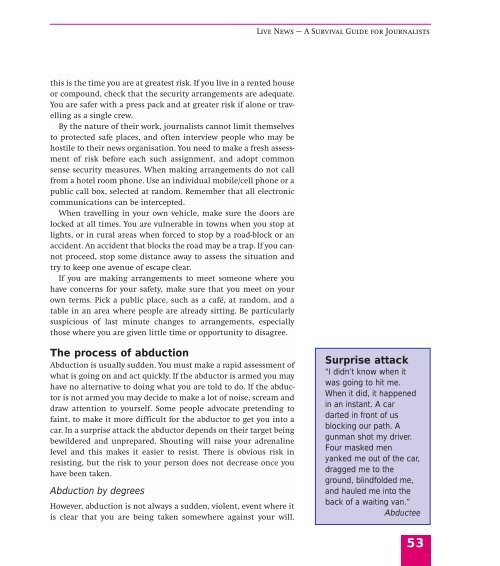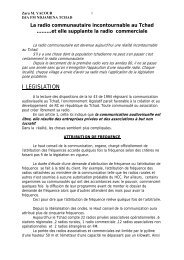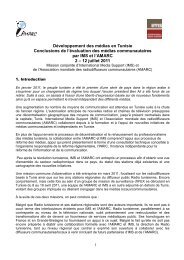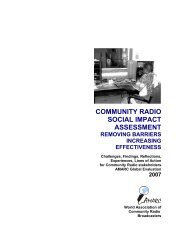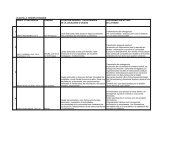Live News - A Survival Guide - International Federation of Journalists
Live News - A Survival Guide - International Federation of Journalists
Live News - A Survival Guide - International Federation of Journalists
- No tags were found...
You also want an ePaper? Increase the reach of your titles
YUMPU automatically turns print PDFs into web optimized ePapers that Google loves.
<strong>Live</strong> <strong>News</strong> — A <strong>Survival</strong> <strong>Guide</strong> for <strong>Journalists</strong>this is the time you are at greatest risk. If you live in a rented houseor compound, check that the security arrangements are adequate.You are safer with a press pack and at greater risk if alone or travellingas a single crew.By the nature <strong>of</strong> their work, journalists cannot limit themselvesto protected safe places, and <strong>of</strong>ten interview people who may behostile to their news organisation. You need to make a fresh assessment<strong>of</strong> risk before each such assignment, and adopt commonsense security measures. When making arrangements do not callfrom a hotel room phone. Use an individual mobile/cell phone or apublic call box, selected at random. Remember that all electroniccommunications can be intercepted.When travelling in your own vehicle, make sure the doors arelocked at all times. You are vulnerable in towns when you stop atlights, or in rural areas when forced to stop by a road-block or anaccident. An accident that blocks the road may be a trap. If you cannotproceed, stop some distance away to assess the situation andtry to keep one avenue <strong>of</strong> escape clear.If you are making arrangements to meet someone where youhave concerns for your safety, make sure that you meet on yourown terms. Pick a public place, such as a café, at random, and atable in an area where people are already sitting. Be particularlysuspicious <strong>of</strong> last minute changes to arrangements, especiallythose where you are given little time or opportunity to disagree.The process <strong>of</strong> abductionAbduction is usually sudden. You must make a rapid assessment <strong>of</strong>what is going on and act quickly. If the abductor is armed you mayhave no alternative to doing what you are told to do. If the abductoris not armed you may decide to make a lot <strong>of</strong> noise, scream anddraw attention to yourself. Some people advocate pretending t<strong>of</strong>aint, to make it more difficult for the abductor to get you into acar. In a surprise attack the abductor depends on their target beingbewildered and unprepared. Shouting will raise your adrenalinelevel and this makes it easier to resist. There is obvious risk inresisting, but the risk to your person does not decrease once youhave been taken.Abduction by degreesHowever, abduction is not always a sudden, violent, event where itis clear that you are being taken somewhere against your will.Surprise attack“I didn’t know when itwas going to hit me.When it did, it happenedin an instant. A cardarted in front <strong>of</strong> usblocking our path. Agunman shot my driver.Four masked menyanked me out <strong>of</strong> the car,dragged me to theground, blindfolded me,and hauled me into theback <strong>of</strong> a waiting van.”Abductee53


